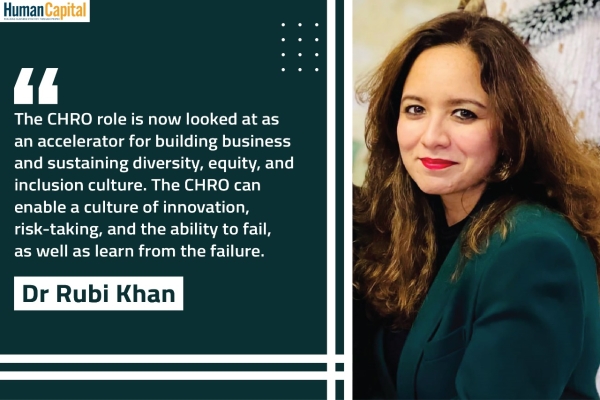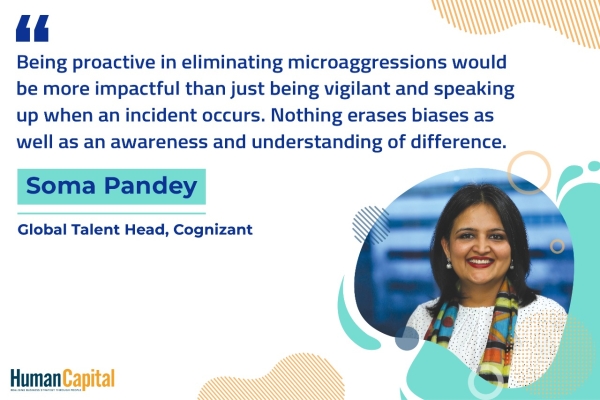A two day external leadership workshop started off with an Australian Facilitator challenging us with the statement: "If there is one person in the room who can come forward and say, 'YES!' I have been a true leader and I could not have been any better.' It is interesting to note that none of the participants from different industries, including the facilitator himself, albeit senior professionals, stood up! The learning was simple: though all of us are leaders, we know that Leadership is a great deal more than what we think and act, and this set the context for the next two days.
Over the next few days, the hangover of the workshop was such that I turned to anyone and everyone to talk and debate on the subject of Leadership. The outcome of most, if not all, the conversations was that there is no single leadership style that serves best. Rightly so, as a Google search on Leadership throws up a 1000 million results in less than a fraction of a second. It is huge and vast, and as per a report, we spend 14 Billion Dollars a year on leadership development.
Just at the time of appreciating leadership beyond the sphere of time and scope, I had an interesting conversation with Anvita, my 9 year old niece. Since she had served as the junior people leader at her school the previous year, she was the right candidate for this subject. I tried the Australian's way and asked her whether she believed that she has served as a Leader to her best capacity. She nonchalantly responded, 'YES!' I further asked her, what made her think so, and how would she articulate those qualities or attributes, say the top 3?
She thought for a few seconds and mentioned - (a) being kind and caring for the group, (b) taking responsibility for the group's actions, and (c) being independent and strong with an ability to look at options. In all my sixteen years of professional life, I have never come across anyone this confident and spontaneous in answering questions on leadership. I asked her, how did she know what she mentioned is true. She retorted, 'I have been reading and observing so many people, and importantly, I performed the role and that is how I know what it takes!' I was instantly moved by her answer. A 9 year old had such a deep understanding of leadership by the meaning of social relationship in her world. I continued, 'Then who according to you are the best leaders, if you have to name a few?' She replied, 'Gandhiji, My class teacher, and most importantly, My Father.' I was bowled over again. At a time when adults quote names such as Bill Gates and the late Steve Jobs, here is a child quoting 2 out of 3 names by virtue of actual experience. She continued, 'See, the way I see it, being a school people leader is really not about the self, but everything about others. It is those qualities that will make us successful!'
There was nothing more I could say. If anything, this child should be giving lessons on leadership. If you realise, she just politely told me the difference between leaders and leadership. Leaders can be individuals, but leadership is different as it recognises the importance of followers and relates the process of the collective to social (or even cultural) capital, and is not limited by the sphere of time and scope. At the heart of leadership are qualities such as Being Ethical, High Integrity, and Benevolence. As I reflected upon my niece's answers, I realised that each of her points carries a meaning, purpose, and direction.
A. Being kind and caring for the group
A genuine quality of going beyond self- interest towards the interest of others is indeed a very important attribute for a leader. All through history and the present, successful leaders have exhibited compassion and empathy towards individuals and societies with high integrity and honesty at the core. It is this quality that set them apart as a leader and brought them success through their journey, even at a time when they were formally not recognised as a leader. Robin Sharma captured this beautifully in his book,'The leader who had no titles.' He writes that in order to be a great leader one should first become a great person. As for me, greatness starts within oneself when you become genuinely concerned about others' welfare. Perhaps, when we relentlessly work towards the well-being of others, our meaning of success goes beyond extrinsic motivators such as titles, money, and possessions, and sees oneness among everyone and everything that we do, a way of higher being. Energies are unleashed for greatness within and around, and people look to you as a leader.
B. Taking responsibility for group's action
Our former honourable President, the late Dr. APJ Abdul Kalam shared an experience in his book 'Wings of Fire' which seems very apt in this context. The year was 1979, and after 10 years of hard work, India was on the verge of launching its first ever experimental rocket 'Rohini technology payload.' The project was driven under the leadership of Prof. Satish Dhawan with Dr. Kalam in a key role. The entire nation was looking forward to the success of the launch. Unfortunately, the rocket plunged into the deep waters of the Bay of Bengal, and the launch failed. Fingers were pointed at Dr. Kalam for the failure. Dejected and concerned with the criticism, Dr. Kalam was unsure about facing the media. But Prof. Dhawan faced the media and took the blame upon himself and promised that they will be successful the next time. Exactly a year later, Dr. Kalam and his team were able to carry out a successful launch and were praised by the entire world. There was jubilation all across India, and during the press conference, Prof. Dhawan gave credit to Dr. Kalam and made him address the media! This sums it all as to what it means to take responsibility for the group's action. While one can insert many adverbs and adjectives such as inspiration, empowerment, and trust, ultimately it is the willingness to assume ownership of the team that is most important!
“Known as the concept of Romance of Leadership, we tend to ignore contextual factors such as the environment and followers. We either glorify or degrade leaders on the basis of the outcome.”
C. Independent and strong, with an ability to look at options
Sadhguru once said, 'A leader is someone who is able to see things which others are not able to see.' This is entirely true and can be developed only through a strong sense of awareness and commitment that makes them strong and emotionally balanced, with an ability to look at options and arrive at the right decisions. It is only through a sense of responsibility that it becomes possible to develop such a commitment. There needs to be a conscious effort to build this commitment, and the first two points of caring and taking responsibility for the team forms the foundation for this ability.
A critical aspect of this ability would be to build awareness within oneself. Importantly, this awareness should be built on experience and not be entirely academic. There is substantial evidence supporting experiential learning such as the 70:20:10 model2 which states that learning happens 70% of the time through challenging assignments, 20% through developmental relationships, and the remaining 10% through coursework and training. This has been researched and is proved to be true, and in our experience, building awareness is presently the root spine strength of leadership. As Sadhguru says, if you become aware, new possibilities open up and you elevate yourself to a higher level.
The adult world's biggest problem is that we tend to over attribute success or failure in a given situation to individual leaders. Known as the concept of Romance of Leadership, we tend to ignore contextual factors such as the environment and followers. We either glorify or degrade leaders on the basis of the outcome. This being the reality, if only all of us can improve our awareness even by a degree, the world would turn out to be a much better place not just for leaders, but more importantly, for Leadership.
Given the lessons from my niece, the best way is to spread this awareness among others. This is clearly the best leadership lesson that I have received from a nine year old. It becomes possible for children to state this naturally since they are not judgmental, hold no bias or prejudice, and hence, are totally authentic. By its definition, authentic leadership means, 'knowing and acting on what is true and real inside yourself, your team, and your organisation, AND knowing and acting on what is true and real in the world.' In conclusion, it is the quality of seeing everyone as self that makes a successful leader stand truly apart!
Has COVID-19 forever changed the way we live and work?
Trending
-
SBI General Insurance Launches Digital Health Campaign
-
CredR Rolls Out 'Life Happens' Leave For Its Employees
-
Meesho Announces 30-Week Gender-Neutral Parental Leave Policy
-
Microsoft Unveils Tech Resilience Curriculum To Foster An Inclusive Future
-
60% Indian Professionals Looking For Job Change Due To COVID: Survey
-
SpringPeople And Siemens Collaborate For Digital Transformation Push
-
86% Professionals Believe Hybrid Work Is Essential For Work Life Balance: Report
-
Almost 1 In Every 3 People's Personal Life Affected Due To Work Stress
-
Meesho Rolls Out Reset And Recharge Policy For Employees
-
80% Of Talent Leaders & Academics Say Pandemic Changed Skill Needs For Youth: Report
-
Hero Electric Rolls Out 'Hero Care' Program For Employees
-
Human Capital In Collaboration With ASSOCHAM Hosts Virtual Conference
-
IKEA India, Tata STRIVE Collaborate To Create Employability And Entrepreneurship Opportunities
-
SAP India, Microsoft Launch Tech Skilling Program for Young Women
-
DXC Technology, NASSCOM Collaborate For Employability Skills Program
-
Lenskart To Hire Over 2000 Employees Across India By 2022
-
Mindtree Launches Learn-and-Earn Program
-
Tata AIA Extends 'Raksha Ka Teeka' To Its Employees
-
Swadesh Behera Is The New CPO Of Titan
-
NetConnect Global Plans To Recruit 5000 Tech Professionals In India
-
Hubhopper Plans To Hire 60% Of Indian Podcasters By 2022
-
Corporate India Needs More Women In Leadership Roles: Report
-
Aon to Invest $30 Million and Create 10,000 Apprenticeships by 2030
-
Tech Mahindra Launches ‘Gift a Career’ Initiative for Upskilling of Youth
-
40% Women Prefer Flexible Working Options in Post-COVID World: Survey
-
3 out of 4 companies believe they can effectively hire employees virtually: Report
-
Vodafone , CGI and NASSCOM Foundation launch digital skills platform
-
Odisha: Bank, postal employees to deliver cash for elderly, differently-abled persons
-
Skill India launches AI-based digital platform for "Skilled Workforce"
-
Hiring activity declines 6.73% in first quarter: Survey
-
70% startups impacted by COVID-19 pandemic
-
Bajaj Allianz Life ropes in Santanu Banerjee as CHRO
-
Over 70 Percent MSMEs look at cutting jobs to sustain businesses
-
93 Per Cent employees stressed about returning to office post-lockdown
-
Johnson & Johnson India announces family benefits for same gender partners
-
Indian firms turning friendly towards working mothers
-
Welspun India names Rajendra Mehta as new CHRO
-
Wipro partners with NASSCOM to launch Future Skills platform



Human Capital is niche media organisation for HR and Corporate. Our aim is to create an outstanding user experience for all our clients, readers, employers and employees through inspiring, industry-leading content pieces in the form of case studies, analysis, expert reports, authored articles and blogs. We cover topics such as talent acquisition, learning and development, diversity and inclusion, leadership, compensation, recruitment and many more.
Subscribe Now












































Comment